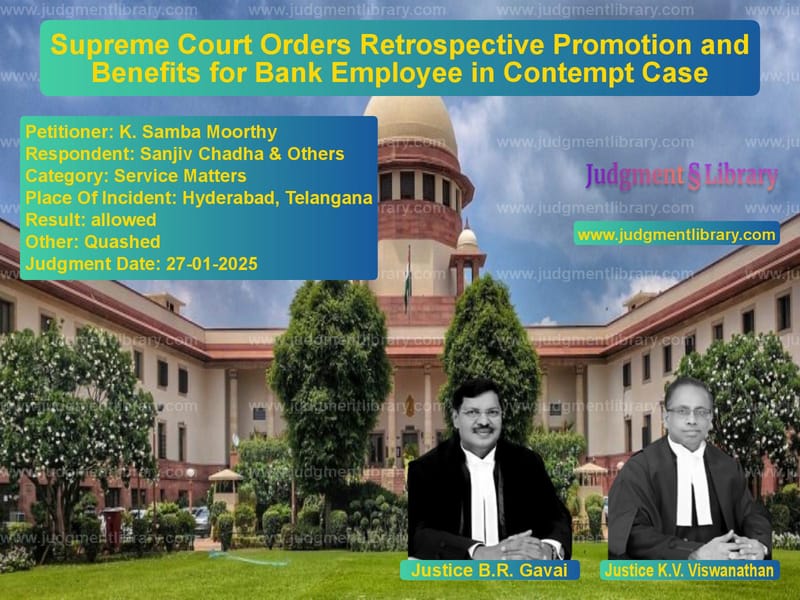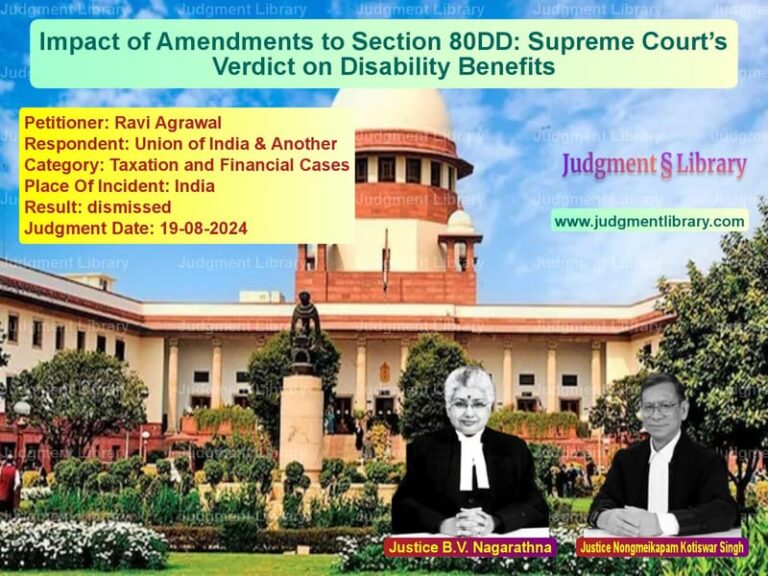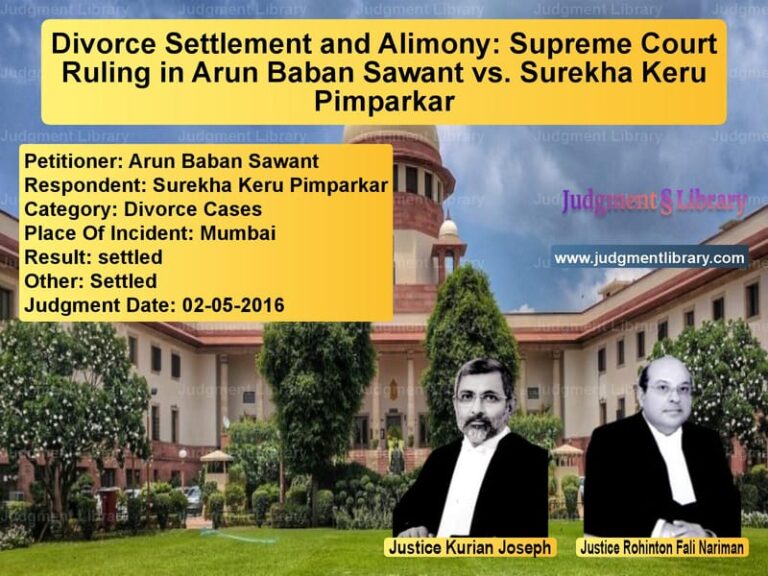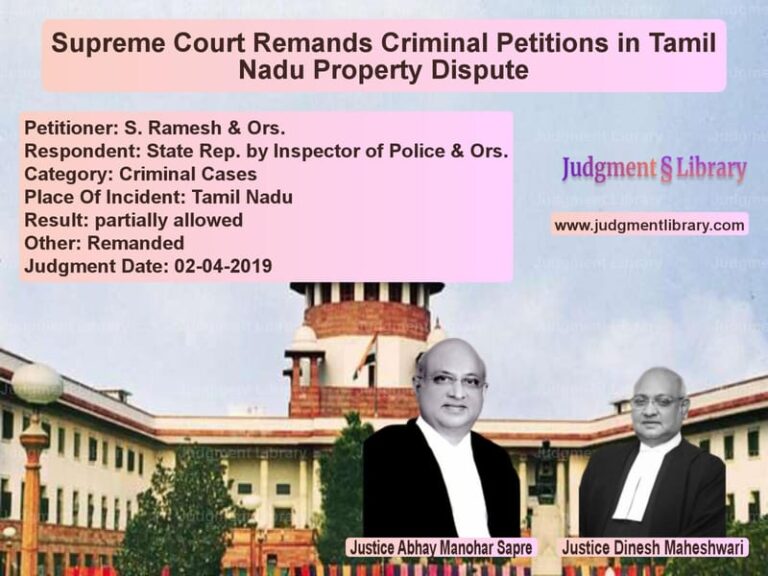Supreme Court Orders Retrospective Promotion and Benefits for Bank Employee in Contempt Case
The Supreme Court of India recently delivered a crucial judgment in the case of K. Samba Moorthy vs. Sanjiv Chadha & Others, granting retrospective promotion and monetary benefits to a retired Bank of Baroda employee. The ruling addressed key issues regarding disciplinary proceedings, the right to promotion, and the enforcement of court orders in contempt proceedings.
Background of the Case
The case involved K. Samba Moorthy, who was appointed as a Probationary Officer in the Bank of Baroda in 1983 and promoted to the Manager cadre (MMG-II) in 1992. In 1999, while serving as Branch Manager, he was issued a show-cause notice regarding alleged irregularities in handling customer accounts and loans.
Following disciplinary proceedings, a minor penalty was imposed on him in 2001: a one-stage reduction in pay for three years, without cumulative effect. As a result, his promotion from Scale-II to Scale-III, which was kept in abeyance, was later canceled. His appeals before the Disciplinary and Appellate Authorities were rejected.
In 2008, he challenged the disciplinary actions in the Telangana High Court, arguing that the inquiry was biased. The Single Judge ruled in his favor in 2017, citing the possibility of bias since the inquiry officer was a junior officer competing for the same promotion. The judgment ordered the cancellation of the penalty and directed the grant of ‘consequential benefits.’
Key Legal Issues
1. Right to Promotion After Exoneration
The bank refused to reinstate his promotion despite the court order. Moorthy continued his career and was eventually promoted to Scale-III in 2012, though he was unsuccessful in subsequent promotions to Scale-IV.
2. Contempt Proceedings for Non-Compliance
In 2023, Moorthy filed a contempt petition against the bank, arguing that it had failed to comply with the 2017 judgment by not restoring his promotion from 2001 onwards. The High Court dismissed the petition, ruling that ‘consequential benefits’ did not necessarily include promotion.
Moorthy then approached the Supreme Court, seeking enforcement of his rights.
Arguments by the Petitioner
Moorthy’s counsel contended that:
- Once the disciplinary action was quashed, he was entitled to full retrospective benefits, including his 2001 promotion.
- The bank had failed to honor the High Court’s ruling, violating his fundamental rights.
- ‘Consequential benefits’ necessarily included promotion since the only reason for cancellation was the flawed inquiry.
- Despite a legal victory, the bank only refunded Rs. 19,446, the deducted salary, which was inadequate.
Arguments by the Respondents
The bank’s counsel argued:
- Moorthy never challenged the cancellation of his 2001 promotion separately, and therefore, it could not be restored.
- His later promotion in 2012 effectively negated his claim for retrospective promotion.
- Contempt proceedings could not grant relief beyond the original court order.
Supreme Court’s Analysis and Judgment
1. Retrospective Promotion Justified
The Court ruled that once the disciplinary action was quashed, the bank had a duty to restore his promotion:
“The only reason his promotion was canceled was the inquiry, which has been found to be vitiated. Therefore, he must be treated as promoted from July 2001 with all monetary benefits.”
2. ‘Consequential Benefits’ Include Promotion
The Court rejected the bank’s argument that ‘consequential benefits’ only referred to salary restoration:
“The expression ‘consequential benefits’ must be given its natural meaning. When a promotion is unjustly denied, its restoration is the natural consequence of exoneration.”
3. Contempt Justified Due to Non-Compliance
The Supreme Court found that the bank had willfully ignored the High Court’s ruling. While the Court stopped short of penalizing the bank, it directed immediate compliance.
Final Judgment
The Supreme Court ruled:
“The appellant must be granted promotion from Scale-II to Scale-III with effect from 28.07.2001. He is entitled to all monetary benefits, including arrears, with 6% interest per annum.”
The bank was given four weeks to comply.
Conclusion
This judgment reinforces the principle that employers must fully implement court orders and not selectively grant partial relief. It also establishes that ‘consequential benefits’ in employment law include promotions that were unjustly denied.
Petitioner Name: K. Samba Moorthy.Respondent Name: Sanjiv Chadha & Others.Judgment By: Justice B.R. Gavai, Justice K.V. Viswanathan.Place Of Incident: Hyderabad, Telangana.Judgment Date: 27-01-2025.
Don’t miss out on the full details! Download the complete judgment in PDF format below and gain valuable insights instantly!
Download Judgment: k.-samba-moorthy-vs-sanjiv-chadha-&-othe-supreme-court-of-india-judgment-dated-27-01-2025.pdf
Directly Download Judgment: Directly download this Judgment
See all petitions in Promotion Cases
See all petitions in Disciplinary Proceedings
See all petitions in Public Sector Employees
See all petitions in Employment Disputes
See all petitions in Judgment by B R Gavai
See all petitions in Judgment by K.V. Viswanathan
See all petitions in allowed
See all petitions in Quashed
See all petitions in supreme court of India judgments January 2025
See all petitions in 2025 judgments
See all posts in Service Matters Category
See all allowed petitions in Service Matters Category
See all Dismissed petitions in Service Matters Category
See all partially allowed petitions in Service Matters Category







